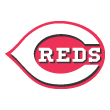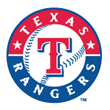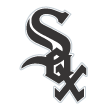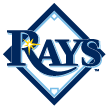Matchups, matchups, matchups.
It's a word we mention often on these pages, and it's a critical component in pitcher valuation. The smaller the sample, the greater the importance of matchups; it is why we agonize over starting pitching assignments at ballparks like Coors Field, Rangers Ballpark or Yankee Stadium, and stream no-name starters at Petco Park.
We, fantasy owners as a whole, are a meticulous bunch, especially when it comes to evaluating starting pitching. And as the summer progresses, the smartest of us take even greater care examining matchups, being that in many leagues, we're feeling the crunch of innings/starts caps by this stage of season. We're also, in head-to-head leagues, on the verge of the playoffs, increasing the intensity of our scouting.
It's no wonder then that I've received an increasing number of questions about teams' upcoming schedules in the past week, both from colleagues and readers. What better time, then, to take a look at the best and worst of what's left?
In order to do this, I've collected per-game data in three categories -- runs scored, total baserunners and strikeouts -- for all 30 teams broken down by home or road games, then for each remaining team game assumed that the opponent would perform at its average number to date in that particular contest. Totaling these stats gives each team an expected number of runs and baserunners allowed and strikeouts the remainder of the year, assuming that every pitcher on the staff performs at exactly a league-average level, and its opponent performs at exactly the rates that it has so far in 2012.
For example, the Colorado Rockies have averaged 5.74 runs and 13.75 baserunners per game at Coors, both of those most in the majors. Therefore, any team with a remaining game scheduled at Coors would be expected -- again assuming league-average pitching performance plus the Rockies managing exactly those numbers -- to allow 5.74 runs and 13.75 baserunners in that particular game. Then do that for every team and every game.
You can see the full charts for all 30 teams below.
But, obviously, not all teams will pitch at exactly league-average levels, and some of those opponents might not score, get on base or strike out at the rates they have to date. Gut calls need come into play, and in this week's "60 Feet, 6 Inches," I'm bringing my gut into this discussion.
Here are some of the schedule highlights:

Cincinnati Reds: Their remaining schedule, in this study, projects as the best in baseball in terms of both runs and baserunners allowed, and we're talking by nearly a run per game (0.85, to be exact) and two baserunners per game (1.88). And sure enough, a closer look provides a telling tale: Following the conclusion of their three-game series at Arizona's Chase Field, the Reds, beginning on Friday, embark upon a stretch of 21 consecutive games against teams that rank among the 10 worst in baseball in terms of runs scored per contest. Even if you choose to exclude the new-look Los Angeles Dodgers (Sept. 21-23) from that potential "hot streak," we're still talking about 18 straight soft matchups for Reds pitching.
In other words, Reds starters are ones to trust, at least through the first 20 days of September, which will get you deep into fantasy's Week 23, the first half of your head-to-head league's championship matchup.
A few things to consider: The Reds boast three starting pitchers -- Bronson Arroyo, Homer Bailey and Mike Leake -- who are available in more than three out of every four (75-plus percent) of ESPN leagues; the Reds also play 12 of their remaining 32 games against the Houston Astros and Pittsburgh Pirates. The latter point is particularly important if you consider the track records of those three pitchers alone against those two opponents:
Arroyo (since 2008): 23 GS, 15 QS (65.2%), 13 W, 3.42 ERA, 1.15 WHIP, 5.42 K/9
Bailey: 15 GS, 12 QS (80.0%), 10 W, 2.30 ERA, 1.16 WHIP, 7.16 K/9
Leake: 19 G (17 GS), 10 QS (58.8%), 5 W, 3.64 ERA, 126 WHIP, 6.26 K/9

Texas Rangers: Though their statistics in the chart at column's end makes them appear scarcely a top-10 team in terms of remaining matchups, the strength of theirs is volume of high-quality matchups. Take out their six remaining games against the Los Angeles Angels, who, since Memorial Day, top the majors in all three triple-slash categories (.288/.347/.472) as well as runs scored per game (5.33), and the Rangers' schedule would be right up there with anyone's. Every other team they face ranks among the majors' bottom half in runs per game, and the Tampa Bay Rays are the only one of them who might push that middle ground.
With the exception of Matt Harrison, the Rangers' other four starters all have questions surrounding them as a result of recent performance. Scott Feldman (7.1 percent owned in ESPN leagues) and Derek Holland (31.9 percent) are the only ones widely available, but Yu Darvish and Ryan Dempster's owners might feel more confident if they saw what remained on their schedules. Assuming an every-fifth-game schedule the rest of the year -- understand that's an assumption -- Dempster isn't even on track to pitch in either Angels series. Here's his schedule in that arrangement: @CLE, @KC, CLE, SEA, @SEA, OAK, @OAK.
Thirteen of the Rangers' final 34 games will be played against the Oakland Athletics and Seattle Mariners, a point that not only favors Harrison, but also Holland. Here are their stats against those teams since the beginning of 2011:
Harrison: 12 GS, 9 QS (75.0%), 9 W, 2.50 ERA, 1.18 WHIP, 6.58 K/9
Holland: 11 GS, 8 QS (72.7%), 8 W, 3.04 ERA, 1.17 WHIP, 7.73 K/9

Boston Red Sox: Can you believe this? A team in the American League East, where those September schedules are full of games against the New York Yankees, Baltimore Orioles and Toronto Blue Jays, ranks high on the matchups list? Believe it, being that the Red Sox still have remaining games against the aforementioned Athletics and Mariners, plus six against the Jose Bautista-less Blue Jays and six against the Tampa Bay Rays. Pick carefully, being that this Red Sox rotation is not what it once was, but you shouldn't be so quick to dismiss a Felix Doubront or Daisuke Matsuzaka when the matchup calls. A particular nugget: Clay Buchholz has six quality starts, a 2.76 ERA and 1.11 WHIP in 12 career starts against the Rays.
How about those poor remaining schedules? If you own pitchers from the following teams, prepare to manage your matchups more closely going forward.

Chicago White Sox: They're already meticulously managing two of their starters' workloads, Jake Peavy and Chris Sale, and Francisco Liriano is one of baseball's most unpredictable pitchers. Peavy has already thrown more innings this season (175) than he has in any season since 2007, and Sale already has more innings (153) than he did in 2010-11 combined (94⅓). Expect to see more weeks like this one, where Peavy has already been pushed back two days, to Friday, and Sale might also get a five-day breather between turns.
There are a few other problems with the White Sox's schedule: They'll play 17 more games at their homer-friendly home venue, U.S. Cellular Field, a problem considering their pitching staff as a whole has surrendered the highest fly ball rate in baseball (38.6 percent) as well as the third most homers in home games (86). They also have three more games in Baltimore, three in Detroit and three in Los Angeles against the Angels, out of their 35 remaining.

Tampa Bay Rays: There's a buzz surrounding them in fantasy, Evan Longoria's healthy return getting them on a hot streak, helping fuel what has been the league's best winning percentage in the month of August (.667). The Rays, too, have baseball's No. 1 ERA (2.28), batting average allowed (.212) and WHIP (0.97) in the month of August, and have Jeff Niemann on the verge of rejoining their rotation. Things are looking up for the Rays until you look closer at their schedule.
Twenty eight of the Rays' remaining 34 games will be played against teams in the upper half in the majors in terms of runs per contest, most in the game, and each of their next 12 are against teams in the top 10 in the category. This team plays 25 intradivision games and the other nine are against these foes: Five against the Rangers and four at the White Sox. There isn't a breather in there, other than their Sept. 20 and 24 off days.
Here's the other problem for the Rays: They might soon go to a six-man rotation, what with Niemann on the way back, and it's not unthinkable that, should they overcome this challenging schedule and mount a hefty lead in either the division or wild-card races, they'd begin resting their starters in the season's waning weeks.
TOP 100 STARTING PITCHERS
Note: Tristan H. Cockcroft's top 100 starting pitchers are ranked for their expected performance from this point forward, not for statistics that have already been accrued.
Streamer's delight
Among streaming starter -- something I define as single-start options in daily leagues among pitchers owned in 25 percent of ESPN leagues or fewer -- options for the upcoming week, here are my picks by day:
Tuesday, August 28: Hisashi Iwakuma at Minnesota Twins
Wednesday, August 29: Barry Zito at Houston Astros
Thursday, August 30: Jeremy Guthrie versus Detroit Tigers
Friday, August 31: Mike Leake at Houston Astros
Saturday, September 1: Luke Hochevar versus Minnesota Twins
Sunday, September 2: David Phelps versus Baltimore Orioles
Monday, September 3: Joe Kelly versus New York Mets
Past picks
Tuesday, August 21: Scott Feldman -- 5 IP, 7 H, 4 ER, 1 BB, 4 K
Wednesday, August 22: Hisashi Iwakuma -- 5 2/3 IP, 6 H, 1 ER, 3 BB, 5 K
Thursday, August 23: Bartolo Colon -- This one sure worked out well. He's suspended 50 games, ending his season.
Friday, August 24: Patrick Corbin -- 4 IP, 9 H, 4 ER, 1 BB, 2 K
Saturday, August 25: Jose Quintana -- 5 2/3 IP, 5 H, 3 ER, 4 BB, 4 K
Sunday, August 26: Lucas Harrell -- QS, 7 IP, 2 H, 1 ER, 2 BB, 7 K
Monday, August 27: Bronson Arroyo -- W, QS, 6 IP, 5 H, 2 ER, 1 BB, 3 K
Week's total: 6 GS, 1 W (16.7%), 2 QS (33.3%), 33 1/3 IP, 34 H, 15 ER, 12 BB, 25 K, 4.05 ERA, 1.38 WHIP
Season total: 132 GS, 58 W (43.9%), 70 QS (53.0%), 800 2/3 IP, 765 H, 342 ER, 258 BB, 593 K, 3.84 ERA, 1.28 WHIP
Three up
Brett Anderson, Oakland Athletics: His late-season recovery from Tommy John surgery has already gone more smoothly than any of the three most relevant examples from the past three seasons, Tim Hudson (2009), Jordan Zimmermann (2010) and Stephen Strasburg (2011). Anderson has tallied exactly seven innings in each of his two starts since activation, matching the maximum managed by any of the aforementioned three, and keep in mind that those three averaged 5.12 innings per start during their late-season runs. Yes, his two matchups (MIN, @CLE) were soft, and there will be greater challenges ahead, but Anderson's peripheral stats during those games bode well for his rest-of-year performance: He had a 70.6 percent ground ball rate and 25 percent miss rate, both of those substantially better than his previous career numbers. His curveball has also been sharp: It was responsible for 8 of his 11 K's and has held opponents to a .130 batting average.
Jonathon Niese, New York Mets: We talk often about how pitchers with good sabermetric stats, but so-so performance in the primary Rotisserie categories, usually pick up the latter over extended periods of time. Such has been the case with Niese; his 3.36 FIP last season belied his 4.40 ERA, but this season he has a 3.85 FIP and his ERA has sunk to 3.51. Niese is riding a three-year pattern of improvement in strikeout-to-walk ratio, his 3.35 number a career best, and his 47.7 percent ground ball rate ranks above the major league average. He's someone you should trust going forward, even if on the lower tiers of the rankings.
Max Scherzer, Detroit Tigers: With Sunday's nine-strikeout performance, Scherzer has eight consecutive games with at least eight K's, per the Elias Sports Bureau the longest such streak in Tigers history. Criticize him for his past inconsistencies if you wish, but one thing that elevates him above that group of aggravating pitchers has been his strikeout ability even when he's struggling. He has the highest K's-per-nine ratio (11.35), second-highest K rate (29.6 percent of total batters faced) and sixth-best miss rate on swings (28 percent), and remember that accounts for his entire season, even that five-start April stretch during which his ERA was 7.77 and that five-start May/June stretch during which it was 6.08. Scherzer is well worth the risk, being that he'll contribute in that one category even at his worst, but considering he has a lifetime 3.53 ERA after the All-Star break (4.31 before it) and a 1.18 WHIP after Sept. 1, his lowest in any single month, he might yet be able to sustain this all the way through year's end.
Three down
Lance Lynn, St. Louis Cardinals: He's out of the Cardinals' rotation and Joe Kelly is in, and accounting for Lynn's workload that should be interpreted as a permanent move. Lynn has tallied 145⅔ innings this year; that is 36 more than he had in 2011 and it had him on a pace to easily shatter his professional high of 164 set in 2010. Remember when the Cardinals claimed earlier in the year that Lynn didn't have a predetermined innings cap? He's a prime example why teams believe they're necessary, as he followed up what was an outstanding first half, going 11-4 with a 3.41 ERA and 1.23 WHIP in 17 starts, with a miserable second half, posting a 5.23 ERA and 1.60 WHIP in eight starts before his removal. What's more, Shelby Miller, pitching for Triple-A Memphis, has quietly restored his top prospect status of late, going 4-1 with a 3.16 ERA, 0.86 WHIP and 12.64 K's-per-nine innings ratio in five starts in August. He, not Lynn, might be the next candidate to assume that spot in the Cardinals' rotation, should the team need an alternative.
Ricky Romero, Toronto Blue Jays: In the past 20 seasons, only two pitchers have managed a game of eight or more walks with zero strikeouts. One of them was Greg Reynolds, who walked eight without a K for the Rockies on May 28, 2008. The other? It was Romero, last Tuesday. The left-hander's command appears to have deserted him; his 5.05 walks-per-nine innings ratio is second worst among qualified pitchers, and his 1.20 K-to-walk ratio is worst in the majors. Romero also has more walks (29) than strikeouts (28) in eight starts since the All-Star break. That kind of pitching isn't going to fly in the loaded AL East, and it makes him a no-go in any fantasy format the remainder of the year.
Ben Sheets, Atlanta Braves: The Braves claimed they'd revert to a five-man rotation beginning with this upcoming weekend's series, and they stayed true to their word, placing Sheets on the 15-day disabled list with shoulder inflammation. Considering his recent performance, injury history and the team's strength in starting pitching, Sheets might have already made his last start of 2012. After five strong starts to begin his season, he allowed 15 runs (14 earned) on 21 hits, five of them home runs, in 16⅓ innings in his past three turns combined. Sheets' 5.34 ERA in August was considerably higher than that of Kris Medlen (0.64), Paul Maholm (2.45), Mike Minor (2.97) or Tim Hudson (3.19), and the Braves cannot afford missteps as they fight for positioning in the National League playoff race. He might have to settle for a relief role once healthy, if he returns at all this year.
